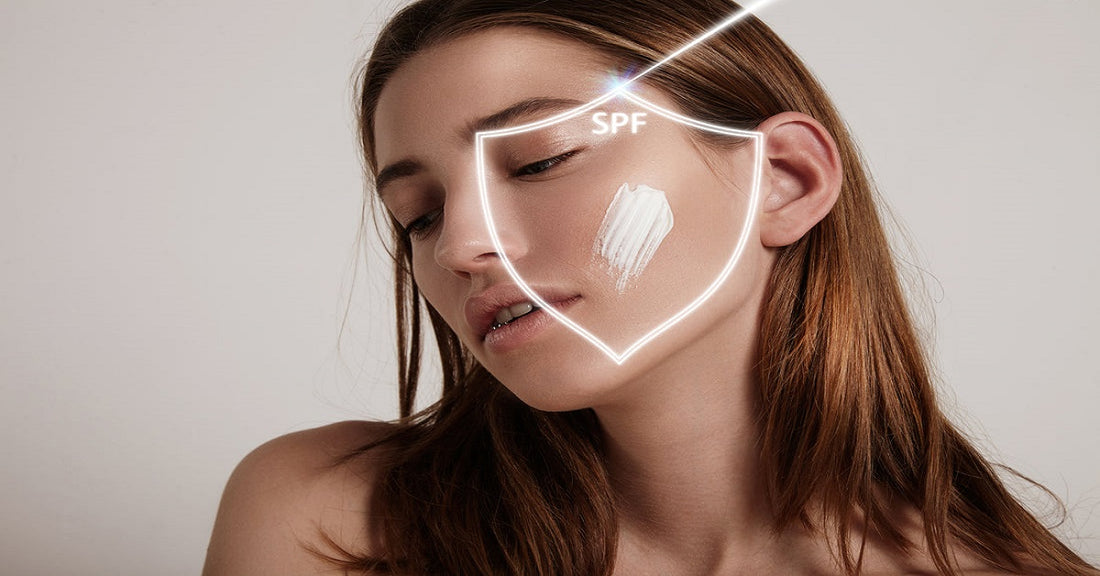
Top 6 Sunscreen Myths that Athletes Must Stop Believing
Share
Top 6 Sunscreen Myths that Athletes Must Stop Believing to Get Flawless Skin
Believe it or not, there is a vital connection between the athlete in you and the sunshine. Every day, you wake up to welcome the warm, fresh sunshine that gets your blood pumping. It also makes you all set for a perfect sprint, cycling, or hardcore workout. Its warmth inspires you to push harder & stay on the course of perfection. Now you are seeing the connection, right?
Let's dial it down a notch & inform you that getting sunburned once every two years can triple your risk of melanoma skin cancer compared to never being burnt. We’re not trying to scare you; we just want you to be careful about your skin. As you’d know, the sun is getting hotter daily due to global warming, thus making UV rays even more threatening. And guess who could be your ultimate saviour? Without a doubt - sunscreens. You’d already know that, right?
As sunscreens' importance is growing, sunscreen myths & misconceptions also start to take centre stage. They fill up your inbox & even your mind with misleading information about sunscreens & sunblocks. So, to clear away all the faff, we’re here to bust the top 6 sunscreen myths.
Before we get down to the meat of it all & separate, let’s list a super important piece of information, i.e., understanding UVA & UVB light. First & foremost, they are the types of ultraviolet (UV) light that can damage the skin if exposed for a longer duration.
UVA light has a more extended wave that attacks the thickest layer of your skin, called the dermis. If UVA rays are exposed to unprotected skin, it can cause skin ageing, wrinkles, and a weak immune system.
On the contrary, UVB light has a shorter wave that only attacks the top layer of skin, leading to sunburn. Exposure to UVB rays can lead to skin cancer and permanent skin damage.
Sunscreen Myths #1: People with Darker Skin Don’t Require Sunscreen
Fact:- Aren’t sunscreen myths as this one told to us a thousand times by our parents, neighbours, or relatives? Be that as it was, now allow us to tell you that it’s true that people with warm skin tones have more melanin than people with fair skin tones. So having a darker skin tone makes you more protected from the sun. But that doesn’t mean you wouldn’t have to use sunscreen.
UVA or UVB damage is not shielded by melanin, so you must use broad-spectrum sunscreen regularly, regardless of skin colour. It’s safe to say that people with darker skin are also not naturally protected from sunburns, blisters, ageing & skin cancer.
Sunscreen Myths #2: Higher SPFs Ensure Better Protection
Fact: Before we get to the debunking of sunscreen myths, let’s tell you what SPF, the number on your sunscreen package, mean? The sun protection factor (SPF) simply means how long a sunscreen will shield your skin from UVA & UVB rays. While choosing a sunscreen with a sufficient sun protection factor (SPF) is essential, a higher SPF doesn't necessarily ensure better protection. So, higher is not always better.
Also read: 8 Best Chafing Prevention Tips This Summer
SPF 30 blocks around 97% of UVB rays, SPF 50 blocks around 98%, and SPF 100 only blocks 99% of UV rays. Before opting for a preferred or prescribed SPF level, remember that no sunscreen can offer wholesome protection against the sun. Moreover, the higher SPFs often lead to a false sense of protection against the sun, which results in skin damage.
Pro tip: You can use our Daily Day Defence Cream with SPF 30 PA++. Its anti-bacterial properties offer solid protection against bacteria thriving in sweat. Moreover, the blend of silica gel with bamboo extracts keeps your skin soft & supple all day long!
Sunscreen Myths#3: Sunscreen Hinders Vitamin D Production
Fact: Vitamin D is a kind of vitamin produced when the protein in your skin reacts to UVB rays from the sun. The required amount of Vitamin D is needed for your body to absorb other necessary nutrients such as calcium & phosphorus.
As explained above, no sunscreen provides 100% protection against sun rays, even if 100 SPF is written on the packaging. That means you'll receive approximately 2% to 3% of UVB rays, which your body needs to create vitamin D. So, consider this sunscreen myth debunked utterly.
Sunscreen Myths#4: Sunscreens are Waterproof
Fact: It’s the kind of sunscreen myth that specifically concerns athletes & outgoers who’re constantly under the sunlight. You must have seen a commercial or read a label that claims sunscreens are water-resistant or sweat-resistant, right? Sadly, all of these claims are exaggerated and misleading. If you’re a frequent swimmer, you should wait 10 to 15 minutes before jumping in the pool or water after applying sunscreen.
According to the American Academy of Dermatology, no sunblock or sun protection can be entirely waterproof. So, you must constantly reapply water-resistant sunscreens after water exposure.
Pro Tip: For a go-getter like you, our Dry Feel Anti-Chaffing Cream ensures your movements are friction-free and non-greasy. It’s enriched with the goodness of shea butter that smoothens & softens inflamed skin.
Sunscreen Myths#5: You Only Need Sunscreen When Sunny
Fact: You were wrong to think you don’t need sunblock or sunscreen if there’s a forecast condition. While the source of all the damaging rays may be hidden, 90% of UV rays pass through clouds. Why is that so, you wonder? Because clouds are water vapours suspended in the air, UV rays easily penetrate them. So, sunscreen is better before heading out for intense training sessions, even if it's cloudy or rainy.
Pro tip: When you go out, don’t forget to care for your hair (given how hair can make or break a look). Our Hair & Scalp Refreshing Mist is the perfect solution for all your pre & post-workouts as it returns the lost moisture and offers protection from harmful UV rays.
Sunscreen Myths#6: Sunscreen is Harmful to Your Skin
Fact: As scary as the last sunscreen myth may sound, it is just as meaningless & misleading. Currently, no tangible evidence suggests sunscreen is dangerous for human skin. On the contrary, there is enough data to show that it helps prevent skin cancer. The U.S. Food and Drug Administration (FDA), Indian Medical Association, and the American Academy of Dermatology (AAD) uphold that wearing sunscreen is safe and helps lower the risk of skin cancer.
There you have it, and we hope that the debunking of sunscreen myths will help you make better decisions about sun protection. So, let the athlete in you keep sweating hard & achieve perfection with a flawless glow.
Get the Best Sports Sun Protection for Indian Skin at Skift
For roundabout protection against tropical heat & sun, you’d need a mineral sunscreen for the best sunscreen for athletes. Besides being less chemical-intensive, they offer broad-spectrum protection against UVA & UVB rays. Moreover, why stop at sports sunscreen? Build a proper skincare routine for sports by adding hair-refreshing mist, anti-chafing cream, & face mist to your sports skincare routine. Head over to our website now!



